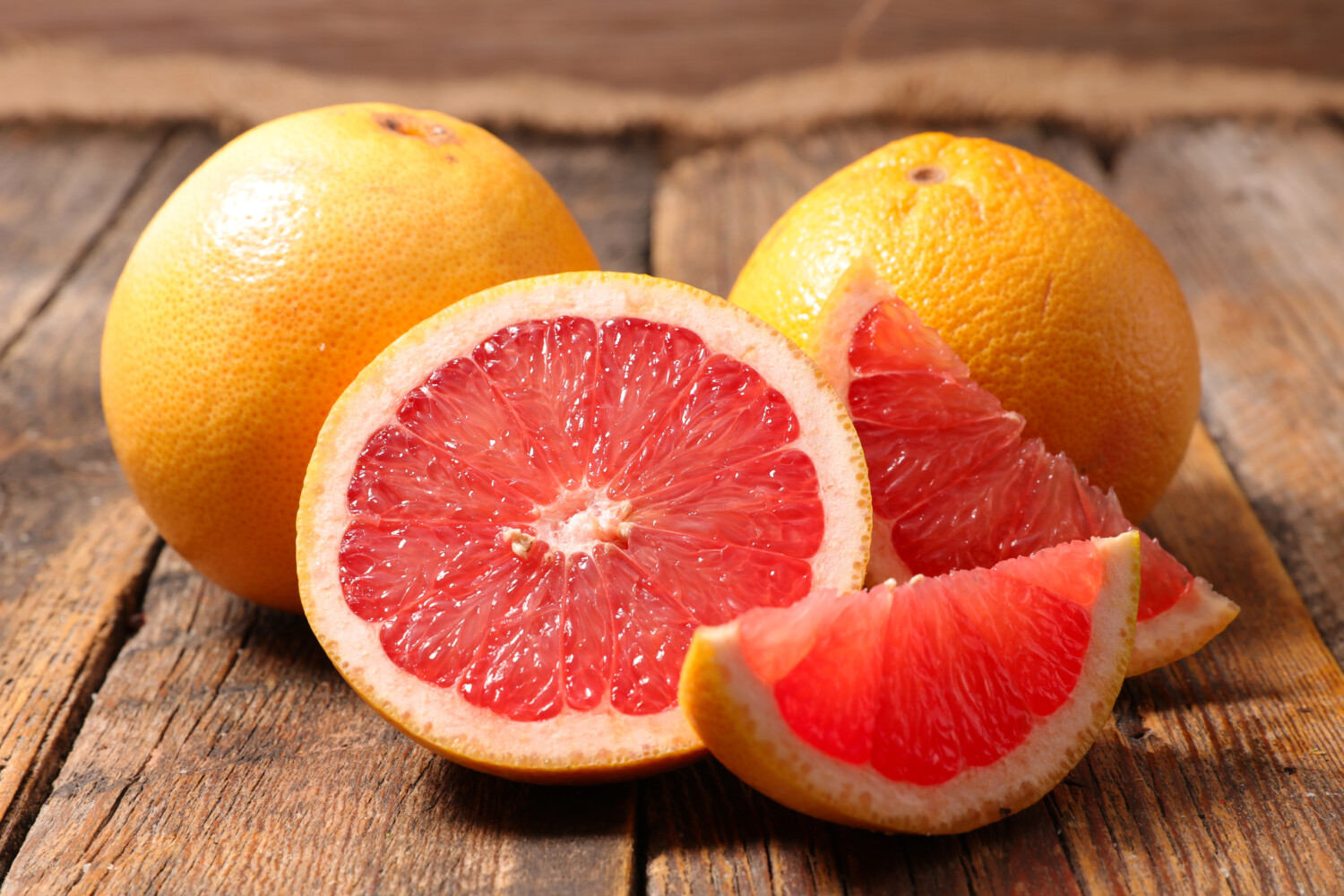When it comes to good health, experts recommend eating 2 cups of colorful fruit per day. With so many kinds to choose from at the grocery store, how do you pick?
While all fruit is considered to be good for you, we’ve rounded up five of the best kinds that give you the best bang for your buck nutritionally. Here’s an assortment of extra-healthy produce you should sink your teeth into ASAP, and answers to four common fruit-eating questions.

Dates
Rumored to be the next big superfood, dates are a part of the Mediterranean diet and high in potassium, magnesium, manganese and vitamin B6. They might even promote healthy brain function. Dates can be eaten on their own (a serving size is roughly five dates), tossed in smoothies or stuffed with peanut butter or cheese.
Registered dietitian Kimberly Nanninga believes the nutrients in dates to be physically healing.
“They are nutrient-rich, and high in fiber, iron and antioxidants that have been shown to help support your body in so many ways,” she told Taste of Home.
Bananas
If you’re looking for a great healthy, portable snack, these are a good go-to. Acting as a quick pick-me-up thanks to their high carbohydrate content, bananas are great for active individuals. They’re rich in potassium, magnesium, manganese and fiber, plus vitamin C and B12.
Overall, bananas transport well, so you can cart them along to the beach or to your kid’s soccer game. However, if you’re heading out on a road trip, don’t pack them near anything frozen because bananas and cold temps don’t mix.
Avocados
Eating just half an avocado — which are often considered vegetables but are technically fruits — provides ample antioxidants, magnesium, folate and fiber for an entire day and can help increase your nutrient value. You can consume them on their own, smear them on toast or add them to smoothies and salads. Avocados contain healthy fats, and adding them to your diet might even reduce the risk of heart disease and give your immune system a boost.
“Research has shown that eating an avocado can actually improve your cholesterol,” registered dietitian Tracy Locke Beckerman told Well + Good. Just remember a true serving size is roughly half an avocado.
Grapefruit
Grown on trees, this fiber-containing, softball-size fruit packs a hefty serving of potassium. It’s also high in water content and low in calories. (Drinking grapefruit juice isn’t as good for you as eating the whole fruit, though.)
“One of the key benefits of grapefruit is its high concentration of vitamin C, which plays an important role in the body’s regular immune system function and improves the absorption of iron present in plant-based foods,” Registered dietitian Mary Waddill told Real Simple.
Citrus fruits, in general, are always worth reaching for. Oranges and lemons are also high in vitamin C.

Pomegranate
These dark pink fruits come jam-packed with edible seeds tucked inside, known as the arils. While it can take a little work to remove the sections, it’s well worth it on the health front. Pomegranates are high in vitamins and minerals. This low-calorie fruit contains a plethora of antioxidants, which protect the body’s cells from free radical damage and might help ward off inflammation as well.
What About the Sugar Content of Fruits?
These days sugar seems to be lurking everywhere and we’re well aware it’s not good for our health. Consuming excess sugar can harm our hearts, increase weight gain and the risk of diabetes. You might be wondering: Will the amount of sugar in sweet fruits counteract the nutritional benefits of eating produce?
Here’s the scoop: Natural sugar and added sugar are processed differently inside the body. Natural sugars in fruit don’t impact blood sugar levels because of the fruit’s fibers. Fruit sugar and added sugar aren’t the same, so eating a banana and a candy bar won’t have the same effect on your body. Plus, fruits typically don’t spike blood sugar the same way sweets do.
Is It OK To Opt for Frozen Fruit?
Frozen fruits and vegetables are typically frozen immediately after harvesting, meaning they contain an abundance of nutrients.
In some cases, frozen fruit might even be cheaper and easier to access than fresh fruits depending on the season, like pre-sliced bananas and mangoes.
One thing to keep in mind is to avoid purchasing frozen fruit that contains added sugar, which could be hidden in prepackaged fruit smoothie mixes.
What About Eating Dried Fruit?
It’s easy to get ahold of dried fruit with supermarkets stocking shelves with dehydrated raisins, dates, apricots, cranberries, mangoes, pineapples and more. Beware that many manufacturers add sugar during the drying process, making the finished product sweeter. Dried fruit (preferably without added sugar) is fine in moderation, but can quickly stack up your calorie count if you’re not careful.

Is Organic Fruit Better for You?
Experts claim there is little nutritional difference between organic versus conventionally-grown fruit, but that’s not what most consumers seem concerned with. Even though pesticide use is monitored by the U.S. Department of Agriculture, some chemicals aren’t completely removed from some types of produce before they reach the grocery store. This is why it’s always a good idea to wash your fruit before consuming it or purchase organic fruit that’s been grown without the use of pesticides. But because buying organic is often more expensive, shoppers might strike a balance and opt for it if the fruit in question is on the dirty dozen list, which contains 12 fruits and vegetables with the most residual pesticides.
Another money-saving tip: When eating fresh fruit, it’s always best to eat what’s in season, which is often more affordable than out-of-season produce.
Whether you opt for fresh or frozen, keeping a cornucopia of fruit in your house is good for your health. “Since different fruits possess different phytochemicals with the ability to exert a wide variety of beneficial health effects, it would be unwise to consume only one type of fruit,” Lisa McAnulty, a professor of nutrition at Appalachian State University, told Men’s Health.
Try making a smoothie bowl topped with fresh berries and bananas to help you consume several types of fruits in one sitting.
This story originally appeared on Simplemost. Check out Simplemost for additional stories.


